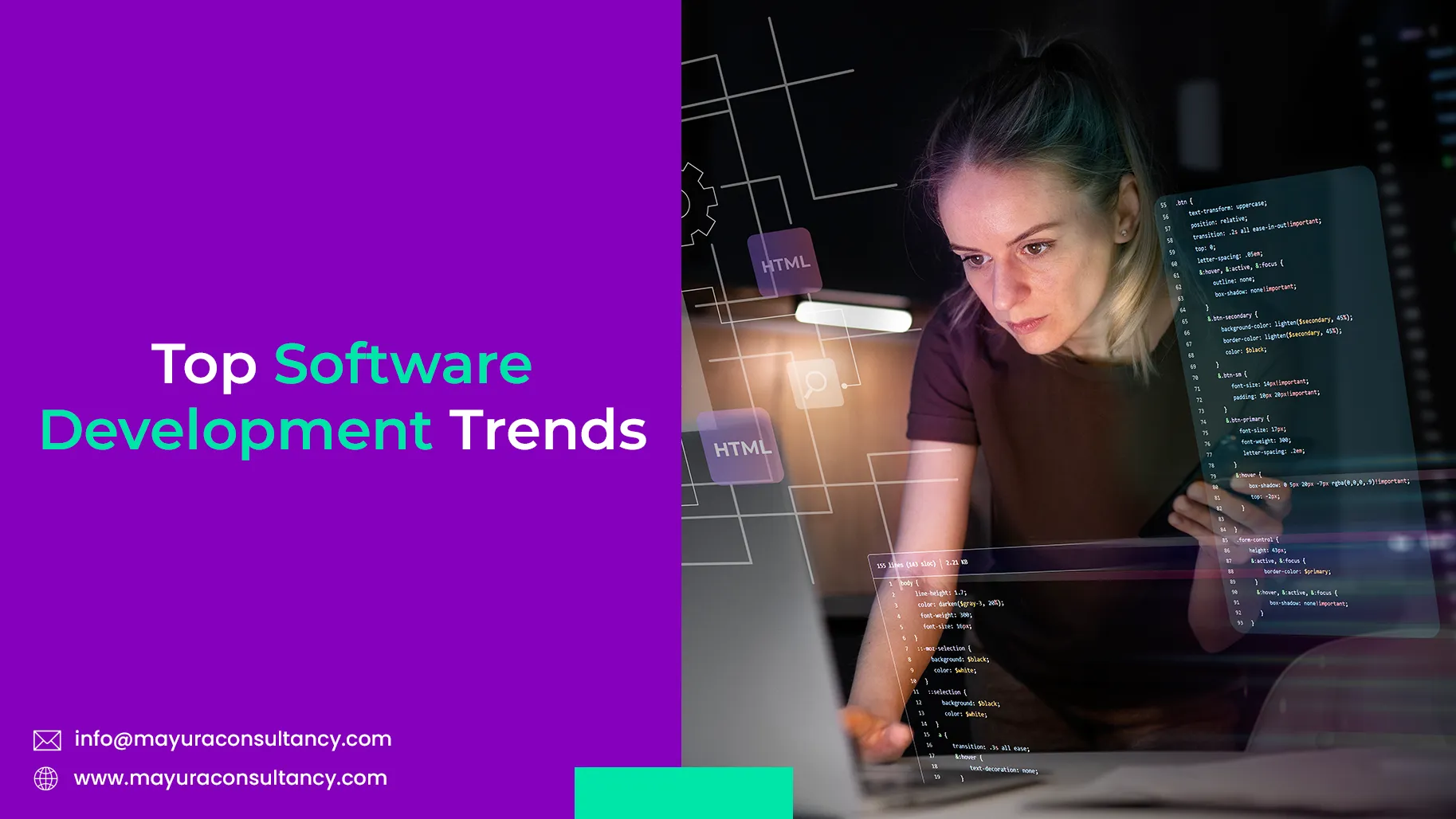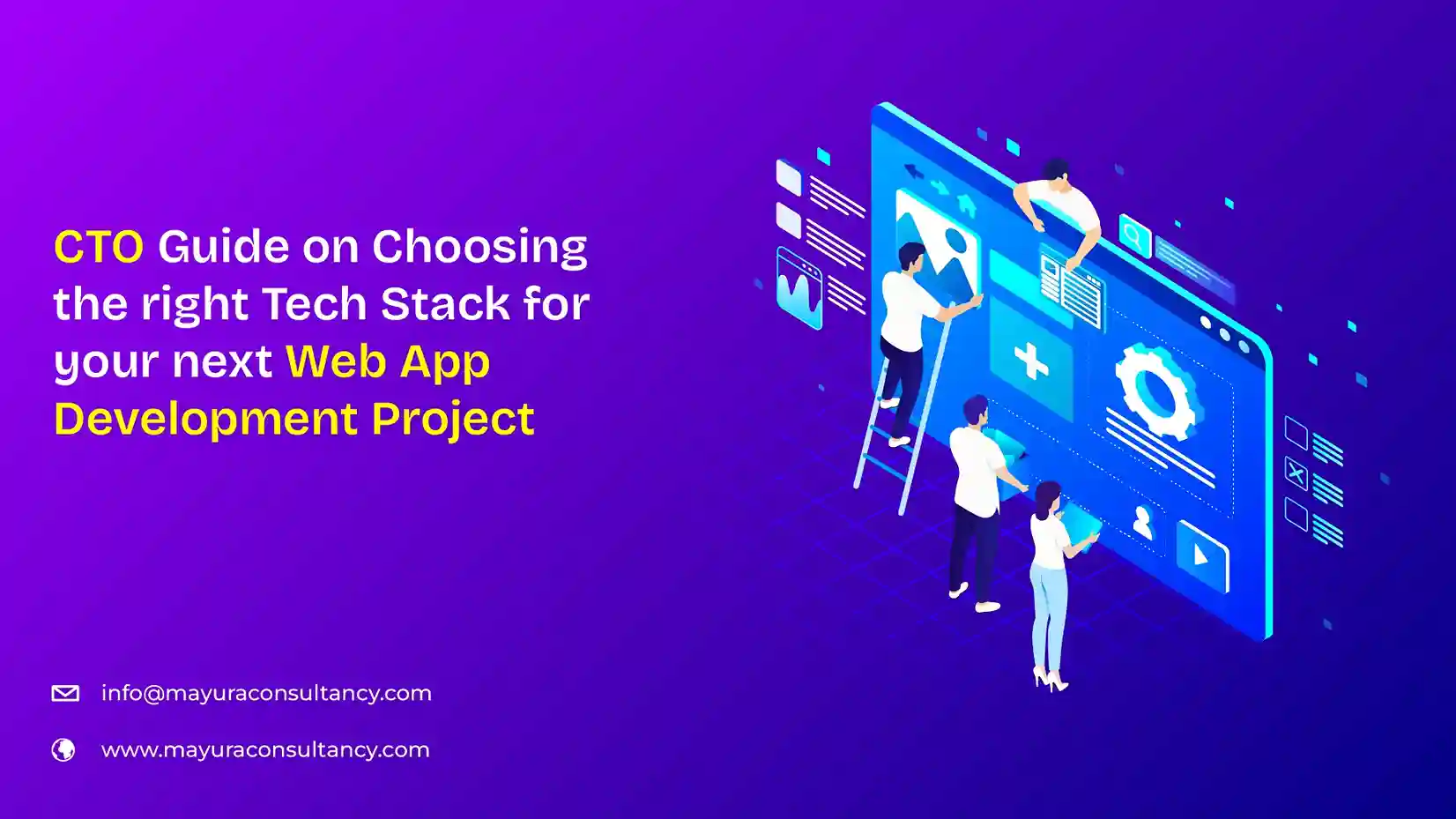After the transformative impact of Artificial Intelligence, what is the next big thing we will see in computing?
In the last few years, we have witnessed rapid development in quantum computing that can be a game changer for many industries, including healthcare, manufacturing, cryptography, material science, agriculture, and others.
This evolving technology can execute highly complex computations outpacing traditional computers, making them a perfect solution for businesses looking for new opportunities and avenues for growth. Leveraging these groundbreaking technologies can completely transform your business and provide you an edge over your competitors.
As quantum technology advances, many new trends are emerging that can revolutionize industries, streamline operations, and create new opportunities. In this blog, we explore the top quantum computing trends, their benefits for businesses, and the challenges of implementing them. But before that, let's understand what exactly is quantum computing.
This Article Contains:
What is Quantum Computing?
Quantum computing is an emerging technology that utilizes the principle of quantum mechanics to solve complex problems much faster than traditional computers. Quantum computers use quantum bits, or qubits, that can exist in multiple states simultaneously.
This enables quantum computers to solve problems at lightning speed, making them well-suited for tasks, such as cryptography, complex simulations, optimization problems, and large-scale data analysis.
What are the Top Quantum Computing Trends?
In 2024, we can see significant progress in quantum computing with the widespread application of new trends like quantum sensing, quantum cloud computing, and others. Here are the top quantum computing trends 2024.
1. Quantum Hardware
Are you excited to experience a breakthrough in computing power?
Quantum hardware is one of the top quantum computing trends that will revolutionize computing speed. Powered with quantum processors, this hardware can process and analyze data instantly, improving the speed and reducing operational costs.
Consider a financial institution dealing with a vast volume of customer data, transaction data, loan repayment data, and others. With quantum hardware, they can process and analyze these data in real time, discovering hidden insights and trends to make strategic decisions quickly.
This kind of processing speed and efficiency enables businesses to address complex computational problems at breakneck speeds that take hours with classic computers, providing competitive advantages and opening up new avenues for innovation.
2. Quantum Sensors
Imagine empowering your business with sensors that can detect the slightest change in the magnetic field or measure gravity with utmost precision. The breakthrough in quantum sensors is among the latest quantum computing future trends.
But, do you know what quantum sensing is?
It is an advanced sensing technology that detects changes in motion and electric and magnetic fields by collecting data at the atomic level. It can also measure temperature, pressure, and magnetic fields.
Moreover, these advanced sensors can be integrated into IoT devices, boosting their data collection capabilities. Integrating sensors in IoT devices is an emerging trend. If you want to know more about the latest IoT trends, consider reading our blog, Top IoT Trends 2024.
3. Quantum Computing in Medical Research
Do you know quantum computing can revolutionize medical research?
By integrating quantum computing into medical research, pharmaceutical companies and medical researchers can make new breakthroughs. This will lead to more effective treatments and a deeper understanding of human health.
For instance, in drug discovery, quantum computing can accelerate the identification of potential drugs by analyzing different molecular combinations. It can significantly reduce the time and cost of bringing new medicines to market.
Moreover, this technology can aid personalized medicine by analyzing genetic data to tailor treatments to individual patients, improving outcomes and reducing side effects.
4. Quantum Computing as a Service
We have experienced the transformative effect of Software as a Service (SaaS) on businesses as it revolutionized access to top-quality applications without hefty investment.
Is it possible for quantum computing as well?
Absolutely! Quantum Computing as a Service (QCaaS) is making this a reality, allowing businesses to leverage the capabilities of quantum computing through cloud-based platforms.
Take the example of an e-commerce startup that doesn't have the resources to pay a large amount for quantum computing infrastructure. By leveraging cloud-based quantum computing, it can access all the benefits of quantum computing without breaking the bank.
To understand how similar cloud-based models are transforming businesses, explore our blog, Top SaaS Trends.
5. Integration of Quantum Computing with AI and ML
Integrating quantum computing and adopting the top AI trends can redefine businesses with enhanced computational power, fater data analytics, robust security, and faster innovations, providing a competitive edge. Once this is fully developed, it can be the next big thing in quantum computing.
Consider an e-commerce company using quantum computing-powered machine learning to analyze customer behavior. They can analyze large data volumes faster and accurately to discover insights, helping them make informed decisions and create personalized marketing strategies.
6. Quantum Cryptography and Security
Will the traditional cryptographic algorithm be effective against quantum attacks? If not, how can businesses protect their data from cyber threats emerging from quantum computing?
The latest cybersecurity trends and technologies are effective against the current cyber attacks. However, cyber attacks on quantum computing require advanced technologies.
For instance, a financial institution can implement quantum cryptography to secure transactions. Moreover, by leveraging quantum sensors, they can detect any attempt to intercept or tamper with the data, ensuring unparalleled security. These technologies will emerge as one of the top quantum computing trends.
7. Quantum Computing in Finance
Quantum Computing is a futuristic technology and is yet to be fully developed but its application in the financial sector will emerge as one of the latest quantum computing trends in 2024 and the coming years.
According to Deloitte’s quantum computing market forecast, the financial industry's spending on quantum computing is projected to rise from $80 million in 2022 to $19 billion in 2032. That's a whopping 233 times!
But how will this technology benefit the finance industry? Let's take an example.
Consider a hedge fund using quantum computing to optimize its trading strategies. They can analyze vast amounts of market data in real-time, detecting patterns and predicting market movements with unprecedented accuracy, empowering traders to make faster, more informed decisions, and maximizing the chances of profits while minimizing risks.
8. Application of Quantum Computing in Software Development
The adoption of quantum computing has emerged as one of the top software development trends recently. But have you wondered how this emerging technology can transform software development?
Unlike classical computing, which processes data in binary bits, quantum computing leverages quantum bits or qubits that exist in multiple states simultaneously. It enables quantum computers to perform complex calculations much faster than classical computers, opening up new possibilities for software development.
Imagine a software development firm utilizing quantum computing to enhance algorithm efficiency. Quantum algorithms can analyze massive datasets and perform complex calculations at unprecedented speeds. This means that developers can create more powerful software in less time.
9. Quantum Networks
Data transmission speed is a significant concern for individuals and businesses around the globe, but what is the solution?
Quantum networks, which is among the top quantum computing trends, can be a game-changer in digital communication and data transmission.
Unlike conventional networks, which rely on traditional bits, quantum networks use qubits that enable secure and faster data transfer irrespective of the physical distance of the devices. This means data can be transmitted with unprecedented speed and security.
Take the example of a global financial institution using a quantum network to conduct transactions. With quantum encryption, they can transfer data instantly, while ensuring the highest level of security.
10. Commercialization of Quantum Computing
Quantum computing is an evolving technology, but we are yet to see a large-scale use of this technology. However, do you know Tech giants like IBM, Google, Amazon, and Microsoft are at the forefront of driving this cutting-edge technology forward?
In 2024 and beyond, we will see organizations adapting this cutting-edge technology, opening up massive growth opportunities for cloud-based quantum computing providers.
They can partner with top software development companies like Mayura Consultancy Services to develop cloud-based quantum computing solutions and grab on the market opportunities early.
11. Quantum-Enabled Supply Chain Optimization
The application of Quantum computing in the supply chain will be among the top quantum computing trends to watch in 2024 and the upcoming years. This technology is set to transform supply chain management, helping businesses optimize logistics and allocate resources more efficiently.
Be it route planning, demand forecasting, or real-time traffic analysis, quantum computing-based supply chain management will enable businesses to streamline operations, save costs, and improve customer experience.
Consider a manufacturing company needs to coordinate its supply chain across multiple continents. By implementing quantum-enabled optimization, it can predict potential disruptions, optimize inventory levels, and streamline logistics, ensuring timely product delivery.
What Are the Benefits of Quantum Computing?
Quantum computing offers many advantages for businesses like faster data processing, unmatched security, and many others. Here are the top benefits.
1. Customization
Quantum computing offers unmatched customization capabilities for businesses with its ability to process vast datasets and complex variables simultaneously. This enables organizations to develop highly tailored solutions that address specific business needs, leading to increased efficiency.
2. Faster Data Analytics
Another advantage of quantum computing is its capability for faster data analytics. While traditional computing methods often struggle with large-scale data processing, quantum computers can analyze and interpret massive datasets in the blink of an eye, empowering businesses to make data-driven decisions quickly and stay competitive.
3. Future-proof upgradability
Quantum computing systems are highly scalable and adaptable, allowing companies to integrate new algorithms and improvements. The modular feature of quantum computing enables businesses to make incremental small changes without costly overhauls and yet stay competitive.
4. Enhanced Data Security & Privacy
Quantum computing enhances privacy and data security as it enables highly secure computation through privacy access from the cloud. Besides that, quantum encryption techniques, such as quantum key distribution (QKD), provide a higher level of security by making it virtually impossible for hackers to decode information.
5. Cost Saving
The initial cost of implementing quantum computing may be a little higher, but it offers long-term benefits. Leveraging this technology, businesses can process complex calculations much faster, reducing the time and resources needed for data analysis.
What Are the Challenges of Implementing Quantum Computing in Businesses?
Adopting quantum computing comes with several challenges that businesses need to assess. Let’s look at the top challenges of implementing this technology.
1. Availability of Talent
Quantum computing is a complex field and still evolving. It requires highly specialized knowledge and skills, which is scarce. Businesses need to invest in hiring quantum computing experts to effectively implement this technology.
2. High Initial Cost
Quantum computing technology is in the early stage and businesses want to implement this technology will require significant investment in hardware and other infrastructure, which can hinder small businesses from adopting this technology.
3. Limited Availability of Quantum Hardware
The hardware needed for quantum computing is not easily available as only a few companies produce them now. This scarcity can create bottlenecks and delays in implementing quantum solutions.
4. Integration with Existing Systems
Integrating quantum computing with existing systems can be complex and challenging. Businesses need to ensure the quantum computing solution is compatible with the existing systems.
Wrapping Up
With the significant progress in quantum computing and its adoption by businesses, the future of this technology will be exciting. From faster data analytics to enhancing cybersecurity and supply chain optimization, this revolutionizing technology will be a game-changer. Businesses that embrace the top quantum computing trends will stay ahead of the curve and unlock new opportunities for growth and innovation.
At Mayura Consultancy Services (MCS), we offer cutting-edge quantum computing-based solutions to help businesses achieve their goals and drive growth. Partner with MCS to leverage the benefits of quantum computing and elevate your business.
Frequently Asked Questions
Quantum Computing benefits businesses with better computational speed, faster data analytics, enhanced data security, cost savings, and exploring new business opportunities.
By analyzing your specific business needs, goals, and challenges you can determine if you need to adopt this advanced technology. You can consult with MCS to assess your technology requirements and implement it accordingly.
Yes, you can customize quantum computing to address your business needs and challenges. Customization allows companies to solve complex problems more effectively than traditional computing.






